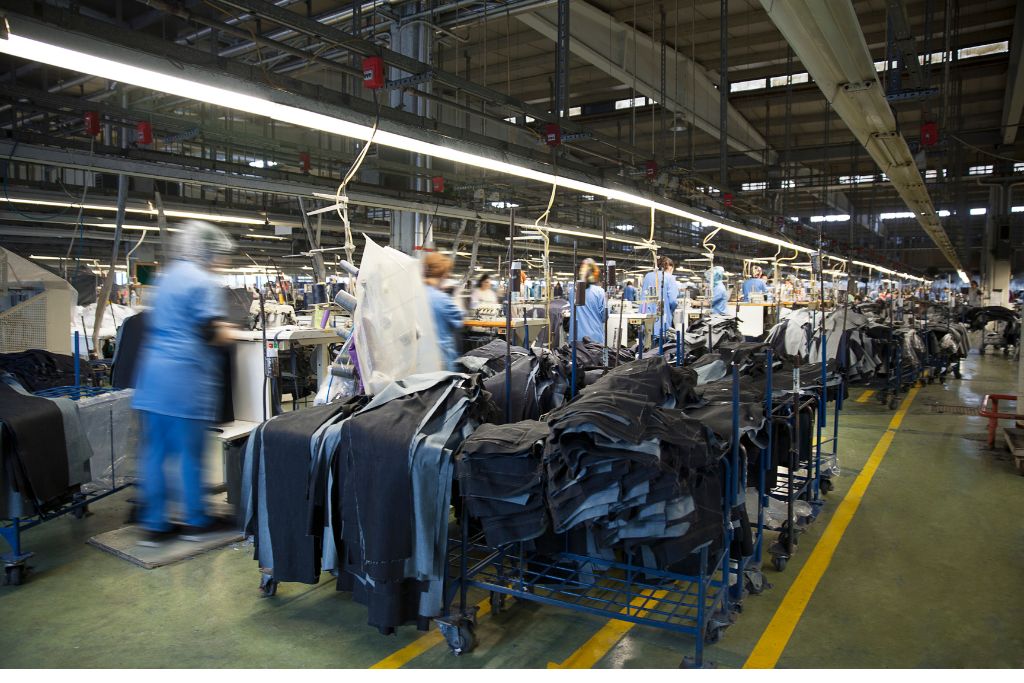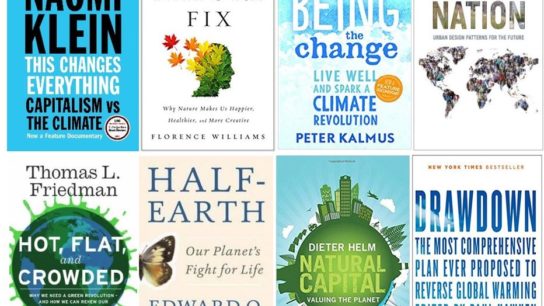Greenwashing in marketing refers to companies presenting product or service information in a way that makes consumers believe it is environmentally friendly. Using false pretences to sell something is morally wrong and companies that do so should be held accountable. Here are the 5 top fast-fashion brands called our for greenwashing.
—
5 Fast-Fashion Brands Called Out for Greenwashing
1. H&M
The second-largest fashion retailer in the world, H&M, contributes to monumental amounts of textile waste and churns out millions of clothing items and designs every year. With more than 5,000 stores worldwide, H&M is one of the many fast fashion companies known for copying high-end fashion, rapid clothing turnover, unsustainable practices including the use of harmful chemicals in its products, as well as inhumane working conditions.
The fast fashion company has since made attempts to adopt more sustainable practices, from implementing a clothing collection and recycling programme within its stores, to the launch of its “Conscious” collection in 2011 where items are made with at least “50% sustainable materials”. H&M also publicly set the goal of using only recycled and sustainably-sourced materials by 2030. These initiatives enable the company to set up a ‘greener’ fashion image. According to its 2021 Sustainability Report, the brand has tripled the share of recycled materials used in their garments as well as reduced its plastic packaging by nearly 28%.
Despite these promising results, it is in the nature of fast fashion – and thus also of the Swedish company – to trick consumers into buying more clothes than they truly need. Moreover, promoting recycling and encouraging consumers to do the same cannot make up for the 3 billion garments the company produces on a yearly basis. Many also criticise its sustainability claims to be vague and greenwashing, highlighting the lack of transparency in regards to reducing its environmental impact and carbon emissions throughout the supply chain.
2. Zara
Zara might well be the world’s first ever fast fashion retailer. Founded in 1975, Zara famously touted its ability to turn a garment from the design stage to being sold in stores in only 15 days. The Spanish apparel company has now grown to one of the largest and most popular fashion brands out there, putting out nearly 12,000 new designs and manufacturing more than 450 million clothing items every day.
Similarly to H&M, the Spanish giant has made a big effort to boost its sustainability image with the launch of ‘Join Life’ nearly two decades ago. Besides planning to “move towards a circular economy model […] to extend the life cycle of [their] products”, Zara is planning to switch to 100% renewable energy to run its internal operations by 2030. The clothing company has also announced plans to use only cotton and polyester materials that are both sustainable and recyclable, as well as reducing and offsetting all emissions by 2040.
Yet, Zara is nowhere near enough to combat its current fast fashion business model and high carbon footprint in its supply chains, which the company has made no mention to slow down. Many criticise the brand for not providing a detailed enough factory list and refraining from publishing the results of their audits – sparking concerns about transparency. This, in turn, makes it difficult to evaluate how impactful their sustainability goals truly are.
You might also like: 7 Fast Fashion Companies Responsible for Environmental Pollution
3. Uniqlo
As one of the most known fast fashion companies in the world, it comes as no surprise that the Japanese retailer Uniqlo appears in the list of greenwashing fashion companies. Much like other fast fashion companies, Uniqlo has had multiple labour rights violations and complaints.
With over 3,000 stores across the world, and items produced with a significant amount of cheap synthetic materials – including rayon, polyester, nylon, and elastane – and sold at very low costs, the brand’s sustainability reputation isn’t the greatest either.
In recent years, however, Uniqlo has taken more sustainable approaches, such as focusing on technologies to create new clothing from recycled materials to developing energy-efficient infrastructure and supporting the Setouchi Olive Foundation, which aims to protect and restore the coastal areas and islands of Japan’s Seto Inland Sea. “For more than 20 years, Uniqlo has been on a path to sustainability. As a global company creating responsible clothing, we are committed to a healthy planet, society, and people.” – the company’s website reads.
Yet, a lack of transparency has sparked accusations of greenwashing. First of all, Uniqlo does not present any certification for their textiles. But the real issue is that, despite setting a climate change target to reduce emissions in its supply chain, to this day the Japanese brand fails to report on its progress or disclose implementation settings. Its environmental targets have also not been scientifically approved, which makes it extremely tricky to determine whether they are in line with national and international climate policies.
4. Nike
As the world’s largest supplier of athletic shoes and apparel and major manufacturer of sports equipment, Nike has long been under scrutiny from environmentalists and campaigners. The company was built on the business model of finding the lowest cost of labour possible, leading to several scandals related to sweatshops in Indonesia. Decades of campaigning for worker’s rights led to drastic changes in the company’s culture, which is now considered by many as a champion of sustainability.
Despite significant progress in recent years, the brand is still at the centre of greenwashing claims, most recently for its “Move to Zero” campaign, which was pegged specifically to Climate Week and revolved around the idea that “if there is no planet, there is no sport”. The campaign claims to be the framework for Nike’s journey toward zero carbon and zero waste. Yet, Fashionista’s reporter Whitney Bauck describes it as a mere “marketing campaign that repackages old commitments without offering new ones”. In an interview with the fashion magazine, Nike’s Chief Sustainability Officer Noel Kinder himself admitted that some of the targets the company set itself – such as diverting 99% of all footwear manufacturing waste from landfills and reducing water consumption in Nike’s entire supply chain by 20% per unit by 2020 – were not entirely realistic and might actually be more difficult to reach than initially thought. While the company’s progress is certainly good news, advertising environmentally friendly practices without actually fully committing to them is a form of greenwashing.
You might also like: Fast Fashion and Its Detrimental Impact on the Environment
5. Allbirds
Certified B corporation for its social and environmental performance, Allbirds is a New Zealand-American company selling footwear and apparel and known for being the maker of the popular “sustainable” wool running sneakers.
Despite its claims to keep its products as eco-friendly as possible, Allbirds has been accused of understating the environmental impact of using wool in its sneakers, misleadingly marketing that the sheep from its supplier “live the good life”. According to People for the Ethical Treatment of Animals (PETA) – the largest animal rights organisation in the world – workers beat, stomped on, cut open the skin and slit the throats of conscious, struggling sheep. Moreover, while the company’s life cycle assessment (LCA) measures the carbon footprint of each product based on materials, manufacturing, product use, it fails to assess the environmental impact of wool production on water usage, eutrophication, or land occupation.
You might also like: 10 Companies and Corporations Called Out For Greenwashing
A proposed class action lawsuit filed earlier this year claiming that Allbirds misled consumers regarding its carbon footprint and animal welfare claims was dismissed in June by Judge Cathy Seibel of the Southern District of New York because plaintiff alleged nothing related to the wool used by the company in particular.
Research for this article was conducted by Earth.Org Research Contributor Chloe Lam.
This story is funded by readers like you
Our non-profit newsroom provides climate coverage free of charge and advertising. Your one-off or monthly donations play a crucial role in supporting our operations, expanding our reach, and maintaining our editorial independence.
About EO | Mission Statement | Impact & Reach | Write for us


















